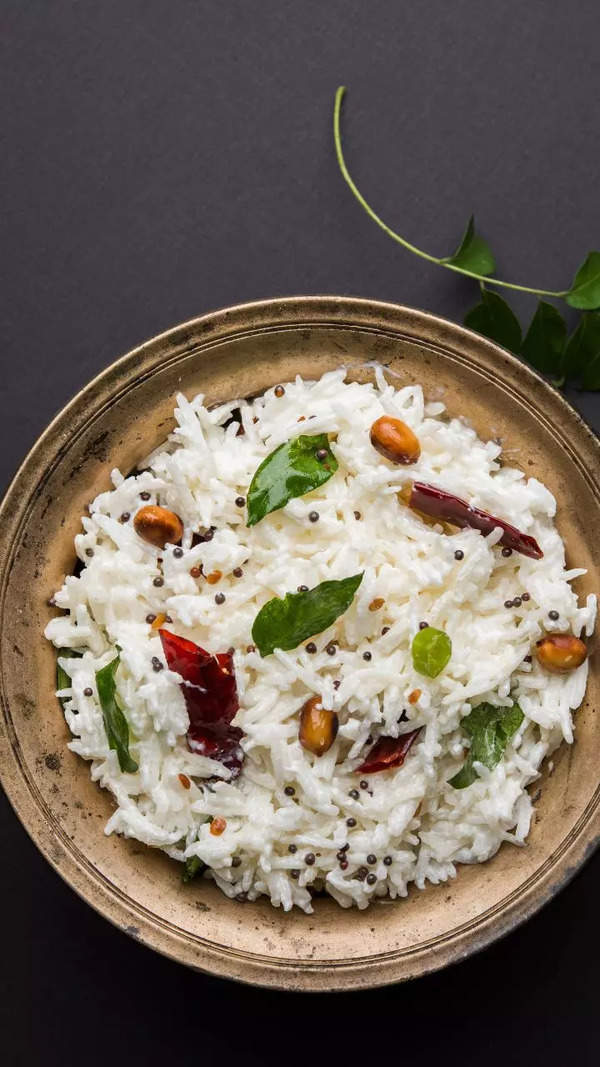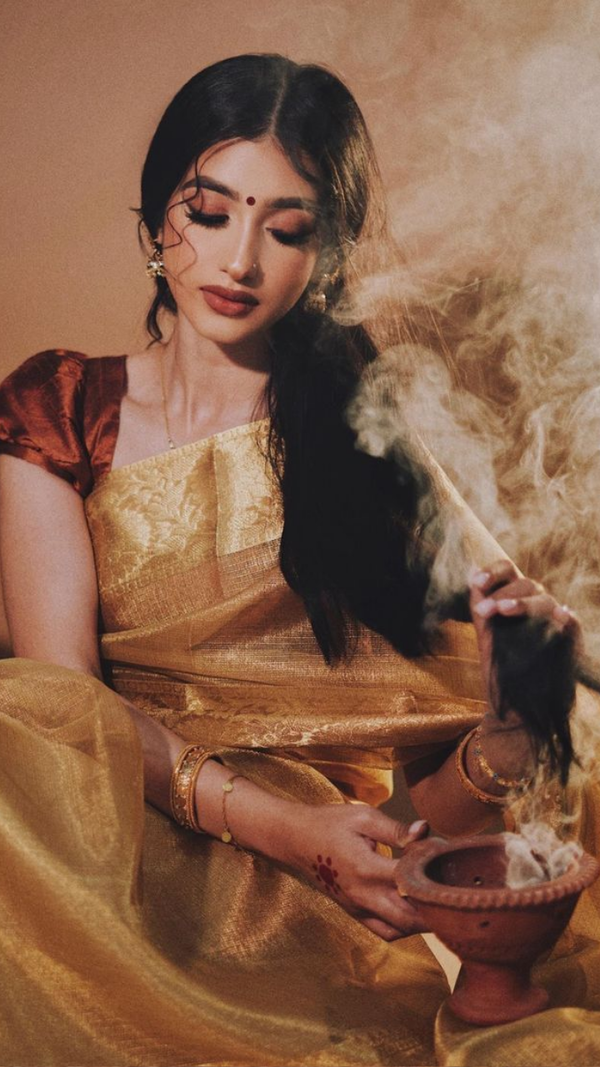- News
- entertainment
- hindi
- bollywood
- Kiran Rao: There’s a sense of diffidence that even the most vocal and liberal women have
Kiran Rao: There’s a sense of diffidence that even the most vocal and liberal women have
‘Why has it been so long’ is the question so many viewers had after watching Laapata Ladies. Where did Kiran go after Dhobi Ghat?
It wasn’t intentional. I have been working consistently since Dhobi Ghat. I was writing. In fact, I had an idea for a story – which hopefully will now get made – about a woman’s struggles to get pregnant. I have had many, many stories, sort of developing and swimming around in my head. But for multiple reasons, and reasons that are all in some way interconnected, I wasn’t able to arrive at a draft that I was happy to make. And I think that that happens with a lot of women who are juggling a lot of balls at the same time. In many cases it is family, work… sort of almost... I don’t know. It’s a kind of conditioning where women overthink, and men are much more confident to do whatever they do. And there’s a sense of perhaps diffidence that even the most vocal and the most so-called educated, liberal of us have.
Could you expand on that – why are women more diffident?
Very few would correlate to the fact that Kiran Rao is not sure of herself. That’s not how it looks from the outside.
Yeah, it’s not that I am not sure of myself, in that sense every artiste has their self-doubt…
I had people sort of shake me and rail at me and tell me, ‘How can you not be making more films?’ and express their disappointment that I am not doing things. But that was nothing compared to what I was putting myself through
But isn’t this gender-specific – what you are saying right now?
It is. Perhaps it takes us longer to do what we do. And it comes from a place of perhaps constantly questioning ourselves. You find that in a room, men are much more confident to just say whatever they feel and what they think. That’s because from when they are young and from many, many generations, they have been taught to be confident and to go out and exercise their point of view.
Women, on the other hand, have been encouraged to make a good home, look beautiful and you know, not really included in the most important conversations. And I think that is something that, whether we like it or not, is part of conditioning of women from when they are very young. And perhaps, for me, I wouldn’t say it was under confidence, but more this loop of questioning what I was doing, whether it was good enough. You know, there’s this instinct almost to not do anything until it’s perfect. Until I’m super satisfied with it.Which is a trap. Because nothing ever is perfect. I think it was partly because I was so absorbed with being with Azad. I’ve had so much trouble having a child in the first place, so creatively and just emotionally, I was so satisfied that I wasn’t in a rush.
Other than that, I think it was that I was in the same sort of loop that many writers get into when they are writing alone – I would find it very hard to break certain logjams that I would reach and have now realised that I do work much better with a co-writer, or at least somebody that I can bounce the story. For many reasons, I was sort of struggling in my writing, but I had stories that, now when I look at them, were fairly good to go. Then, in 2018, the story of two brides came to me through Aamir, and I kind of became quite obsessed with that. And then we got the rights to make it in 2019 and then started working on it. So that’s the journey of the last 12-13 years.

It took me time to find my own voice, to find out what I wanted, to make the kind of stories that I felt I could make, which is why there is such a stark difference maybe in scale or in the appeal between Dhobi Ghat and Laapataa Ladies
Post-success acclaim is part of this industry as default. But the gap between this film succeeding and your last project – in that phase, did you face questions like is she a one-film wonder? Is she ever going to do anything else, or is she just known because of the bigger name in the background? Have people come with that tonality to you?
I feel like perhaps they had all these impressions of me, but I think I am a much bigger critic of myself than anyone else can be. So, I think I was putting myself through the ringer a lot more than anybody else could. I am sure people thought maybe I will only make one film. It’s wonderful actually to think that people really expected me to do more work. It’s a privilege to make films. So, it’s great that people were hoping I would make another, and I knew what I was doing. I was very involved with the world of film, even when I was not making a film myself.
For me... I wouldn’t say it was underconfidence, but more this loop of questioning that I was doing, whether it was good enough... It’s a kind of conditioning where women overthink, and men are much more confident in whatever they do
This period between the 2 movies – was it a phase of emotional vulnerability, before you could finally prove yourself, so to say?
No, I kind of plot my life as pre-Azad and post-Azad. And post-Azad, my life has been emotionally very, very fulfilling and complete. I have been inordinately fortunate in having a child that I have a great relationship with and enjoy so immensely. So I have not been emotionally vulnerable. I was fulfilled in other ways.
Going back to what you said earlier – it takes so much longer for women to believe in themselves. When you said that my first thought was that then the paradox is you have to wait till you’re older to be fully confident, at which point the other insecurities that you will have, men won’t have.
Yes, for instance, it’s harder for mothers to come back to work. To return to the same level that they were working at after having had a child and taken leave and things like that. Or women who are empty nesters who want now to get back to work, it’s much harder for them to find a place for themselves. That’s the reality, you know?
I think it’s a function also of how women in some way internalised certain filters, certain checks on themselves and sometimes it is more convenient because you know that it is a patriarchal society. You could get into all kinds of danger if you express your thoughts too openly and in some of the more conservative parts of our society. And even in a more urban and liberal environment, women find that there is a glass ceiling on their growth even in say a corporate setup. Different women have had different journeys and certainly I have been very fortunate, but still… It took me time to find my own voice, to find out what I wanted, to make the kind of stories that I felt I could make.
When you look around in the space of pop culture you see so many more young women who take their place confidently in conversations, especially when these conversations have to do with their own lives. For too long, women have not had a say in how they can live their own lives. That’s how Indian conservative society has traditionally been, where women had to follow certain rules, and you had to get married, and you had to have children at a certain time. And once you had your first child, you expected to have your second. Things have been internalised by our earlier generations... Now when you look around, I feel it is definitely getting better.
You know how they say, ‘Produced by Aamir Khan and Kiran Rao’ and people naturally assume that your name is there because you are his wife or something. But then they got to see that okay, this is what she is on her own

How much of that did you internalise? How much of did you have to fight to find your own mental space and independence?
I did not consciously have to fight in that sense. I am very, very lucky to have had an education, been confident enough to live alone in a city by the time I was 18 and find my own work and make my own connections, drive my own career. I did feel that I wanted a family. I did feel that I kind of had the sense that I would like to have a child, but even that was a bit of a struggle for me. But it was not like consciously I felt… Like for me, it was not a sense of that I can’t do this because socially it’s not acceptable. That’s never been for me a consideration. Because I’ve done things... had an inter-religion marriage, had a surrogate child. So, there are many things, and, in many ways, I have lived life the way I wanted to.
Did it take time for people to recognise you for yourself, as opposed to the hyphenation with Aamir?
On some level, I would think that you would be able to answer it better than me, because I only have a sense of the people I am surrounded by. I have stayed away from social media and now of course it’s at another level, but let’s say 20 years ago, when I first started seeing Aamir – you know back then if there had been social media, I would have perhaps been very influenced by what people perceived me as. But I haven’t changed. Perhaps the only change I have seen has been post Laapataa Ladies. The film kind of gave me in some ways a distinctly personal identity as a filmmaking voice, as a filmmaker. And I am grateful for that, because people know what I am interested in, what kind of things I am capable of doing, so perhaps they view me differently also in this journey.
From when we started working on this film to the release of this film, Aamir and I got separated and then divorced. Quite naturally, by the end of it, when we were making the film, and also because Aamir as a producer is pretty hands off, I was pretty much helming the project, and I think people saw that… I am not just tag-on. You know how they say, ‘Produced by Aamir Khan and Kiran Rao’ and people naturally assume that your name is there because you are his wife or something. But then they got to see that okay, this is what she is on her own. The fact that they saw me separately with my actors – producing, directing, releasing the film, marketing the film – it sort of became easier to see me as a standalone human being, with my own personality and my own world view.
You spoke about looking at your life as pre-Azad and post-Azad. What did you see changing about yourself in that second phase?
I think the change really was this feeling that my life in some way was very complete. I felt immense gratitude, immense satisfaction being able to be part of his phases of growing up, of getting to know him as an individual, of sharing time with him. Except that I think a lot of parents will say… that this kind of overwhelming love sometimes is quite frightening. Because with all that great love you always worry that it’s almost too much happiness. It’s a double-edged sword. I think a lot of people feel it when they are in love - that you will lose it. I think that having Azad made me aware that such a… lose-yourself kind of love is possible. I don’t think other than that he changed me necessarily. He made me also much more aware of certain ways I look at myself or live my life because as they say, children do as you do, not do as you say. And so, it made me examine some things. In that sense, it did change, it made me more aware that I wanted to be a better person. I wanted to be living life the best I could for him, with him.

If you could write a note to your Jamia self, what would you say today?
I would say don’t be so hard on yourself. Don’t be afraid to explore and discover everything that life has to offer. There are lots of good things out there. There’s lots of good people, good ideas, good things to come. So… be free.
Are you still hard on yourself?
Yes! (laughs) So maybe it’s a note to myself continuously. Forever.









